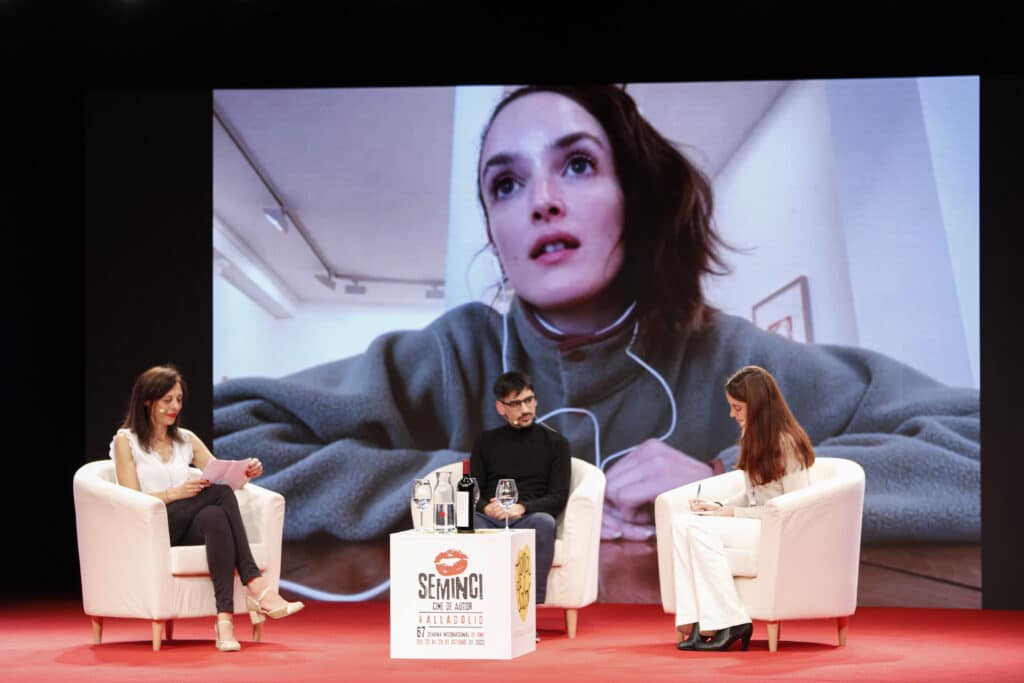The Canadian filmmaker presents her debut feature in the Official Selection
At the beginning of Falcon Lake, Bastien, a 14-year-old teenager who has just arrived with his family at a house on the shores of a lake in Quebec where some friends of his parents live, tries to sleep while, in front of him, a dark, menacing, long-haired silhouette is silhouetted against the window, barely lit by the rays of the storm raging outside. This brief scene in which adolescent love and the supernatural, almost terrifying component converge – the apparition, later revealed to be Chloé, the daughter of the couple living in the house, recalls the creatures of Japanese horror films of the late 1990s and early 2000s – encapsulates Falcon Falcon. The film, “a story of love and ghosts”, is the debut feature film by Canadian director Charlotte Le Bon, which premiered at the Directors’ Fortnight in Cannes and arrived today in Valladolid, where its director gave a press conference via videoconference in which she explained the genesis and evolution of the project.

“Falcon Lake is influenced by the horror films that touched me when I was young, when I was a teenager”, said Le Bon, for whom the mixture of genres present in her film is a response to the fear of facing the first times. “I remember the first time I fell in love and felt attracted to someone, I felt terribly scared”, said the French filmmaker about the adaptation of the graphic novel A Sister, by Bastien Vives, which she has translated into images, moving away from the original reference – a story about a more conventional sexual awakening – as demonstrated by the change of location from the French coast to a lake in Quebec, where the filmmaker spent her childhood.
Le Bon, who has a previous acting career spanning ten years under directors such as Lasse Hallström, Robert Zemeckis and Sean Ellis, among others, has confessed that she approached the personalities of the lead couple, Bastien and Chloé, in a way that reversed traditional gender roles. “Usually, I have played the role of a fragile, sweet girl who is always at the service of a man, and that is something that bothered me a lot”, said the director. “I wanted to find an intelligent young woman, with a rich inner world and who, if she is beautiful and arouses desire, it is not so much because of her beauty as because of the confidence she exudes”, explained Le Bon, who defined as “interesting” the presence of virility in the female character and femininity in the male one.
With regard to the direction of the film, Le Bon defended his preference for analogue over digital because of the result it gives in the final image. “It’s a film that speaks of sensuality, so filming on film seemed key to me”, he explained, praising the grain, colours and textures that this technology provides in a film that has sought a “balance” between light and dark to combine the two genres on which it pivots, something to which the 1:37 format, more square than usual, is added to close in on the protagonist couple in an atmosphere that is as intimate as it is, at times, suffocating. Le Bon also referred to the use of music, used as a counterpoint to what is happening in the images.



























![Logo Foro Cultural de Austria Madrid[1]](https://www.seminci.com/wp-content/uploads/2024/09/Logo-Foro-Cultural-de-Austria-Madrid1-300x76.jpg)








